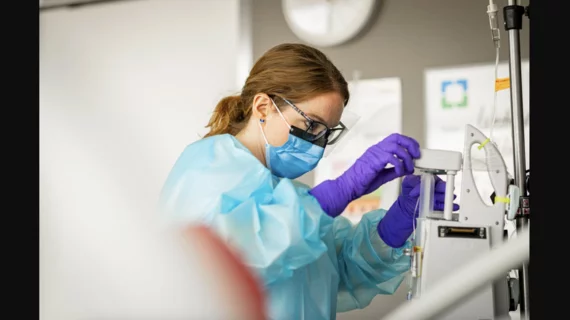Cleveland Clinic treats first patient with new gene therapy for hypertrophic cardiomyopathy
Specialists at Cleveland Clinic have treated a hypertrophic cardiomyopathy (HCM) patient with a new gene therapy designed to reverse disease progression.
This represents the first patient to receive treatment as part of the MyPeak-1 Phase Ib clinical trial, a first-in-human study sponsored by Tenaya Therapeutics. The trial intends to recruit at least six adult patients diagnosed with MYBPC3-associated nonobstructive HCM.
Myosin binding protein C3 (MYBPC3) gene mutations are a common cause of HCM. The group hopes this new-look gene therapy, known as TN-201, can restore the patient’s MYBPC3 levels and eventually lead to disease reversal. The only other HCM treatments at this time are mavacamten, which the U.S. Food and Drug Administration (FDA) approved in 2022, and more invasive procedures such as septal myectomy and alcohol ablation.
Cardiologist and cardiac imaging specialist Milind Desai, MD, director of Cleveland Clinic’s Hypertrophic Cardiomyopathy Center and vice chair of its Heart, Vascular and Thoracic Institute, is one of the trial’s primary investigators. Desai has years of experience studying potential HCM treatments and even presented data at ACC.22 on mavacamten’s safety and effectiveness before it had received FDA approval. He is also a paid consultant of Tenaya Therapeutics.
“Our understanding of HCM has progressed and we are excited to be a part of combining that knowledge with technology like gene therapy to further it even more,” he said in a prepared statement. “We look forward to continuing to study this therapy that involves a patient population that is often underdiagnosed and can suffer debilitating symptoms and sudden death.”
“We are grateful for the support of study sites, referral centers, patient advocacy organizations, and patients and families who are actively engaged with Tenaya in our efforts to explore the potential of TN-201 as a novel treatment for MYBPC3-associated HCM,” Whit Tingley, MD, PhD, chief medical officer of Tenaya Therapeutics, said in a separate statement.

